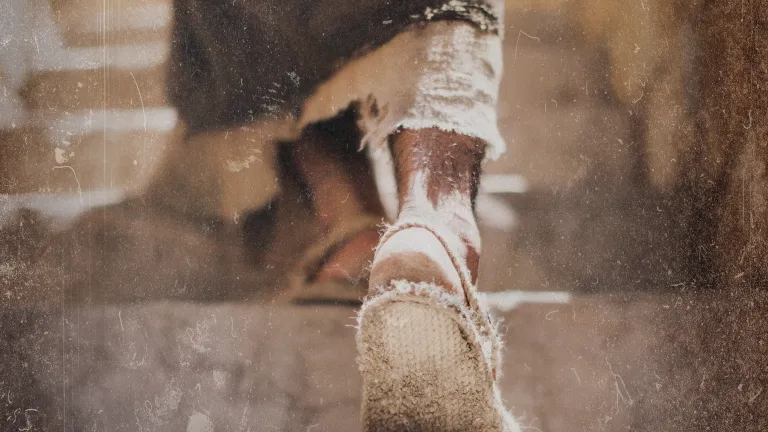Appendix 12: The Attempt to Destroy David’s Lineage
Jesus had other family members who were also of the line of David.
For instance, Matthew 13:55-56 mentions four brothers (James, Joseph, Simon and Jude) and sisters. Jesus also had other relatives of Davidic lineage (see Appendix 11: "Joseph of Arimathea and the Line of Nathan.") Indeed, there were certainly many known descendants of David living in Judea in Christ’s day.
Of two of Christ’s brothers, Joseph and Simon, nothing further is known. James and Jude, however, are known to have become Christian apostles. They wrote the biblical books of James and Jude. James, pastor of the Jerusalem Church, was martyred—according to the Jewish historian Flavius Josephus, this occurred in A.D. 62. It is not known what happened to Jude, although two of his grandsons reportedly lived in Judea at the end of the first century.
The following is quoted from the fourth-century church historian Eusebius (The History of the Church, Book 3, secs. 19-20):
The same emperor [Domitian, A.D. 81-96] ordered the execution of all who were of David’s line, and there is an old and firm tradition that a group of heretics accused the descendants of Jude—the brother, humanly speaking, of the Saviour—on the grounds that they were of David’s line and related to Christ Himself. This is stated by [the second-century church father] Hegesippus in so many words:
And there still survived of the Lord’s family the grandsons of Jude, who was said to be His brother, humanly speaking. These were informed against as being of David’s line, and brought . . . before Domitian Caesar, who was as afraid of the advent [coming] of Christ as Herod had been. Domitian asked them whether they were descended from David, and they admitted it. Then he asked them what property they owned and what funds they had at their disposal. They replied that they had only 9,000 denarii [a denarius being a day’s wages, thus around $300,000 total in today’s money] between them, half belonging to each; this, they said, was not available in cash, but was the estimated value of only twenty-five acres of land, from which they raised the money to pay their taxes and the wherewithal to support themselves by their own toil.
Then, the writer continues, they showed him their hands, putting forward as proof of their toil the hardness of their bodies and the calluses impressed on their hands by incessant labour. When asked about Christ and His Kingdom—what it was like, and where and when it would appear—they explained that it was not of this world or anywhere on earth but angelic and [now] in heaven, and would be established at the end of the world, when he would come in glory to judge the quick and the dead and give every man payment according to his conduct. On hearing this, Domitian found no fault with them, but despising them as beneath his notice let them go free and issued orders terminating the persecution of the Church [at Jerusalem]. On their release they became leaders of the churches, both because they had borne testimony and because they were of the Lord’s family; and thanks to the establishment of peace they lived on into [Emperor] Trajan’s time.
We can imagine that many of David’s descendants had been killed before the hunt was called off—including many descendants of those in Christ’s immediate family. Yet some may have escaped, finding refuge in outlying areas of the Empire, including faraway Britain.






